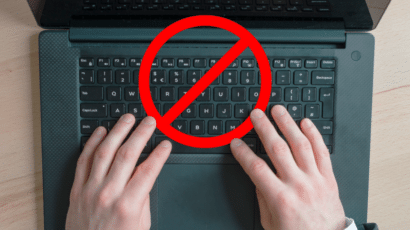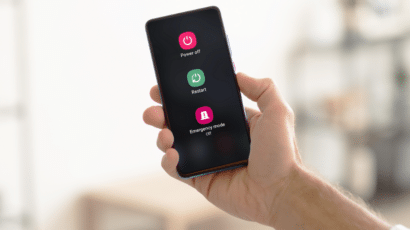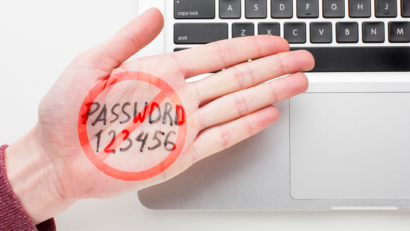PayPal Fake Invoice Scams Target Nashville Businesses
Key Points:
- Scam artists are at it again, and this time PayPal is involved.
- Can you tell the difference between a fake and a real invoice?
- Five traditional invoice frauds that target Nashville business owners.
- How did this employee trick two tech giants into paying him $120,000,000?
- This one step helps you avoid becoming a victim of financial fraud.
A new email invoice scam is starting to land in many Nashville business inboxes. This latest phishing scheme is from scammers emailing fake PayPal invoices. The scam artist sends the business owner an invoice for a service they never provided.
The monies owed are usually small amounts that go undetected and seem valid. But if the money doesn’t get paid, the scammer will threaten to contact PayPal and report the company. Before you take the bait, check out what happened to us in our latest video.
Are PayPal Invoice Scams Real?
Unfortunately, they are, and if you’re not careful, you may end up paying for something you do not owe. The fraud works because a scammer sets up their PayPal account and targets which Nashville businesses they want to invoice.
Next, they create fake invoices inside their PayPal account to look official. In some instances, the invoice you receive will not look fraudulent at all. A good example is how Mike mentions in the video that the dollar amount of $796 is not a number that appears generic, like $800 or $750.
It’s those little details where a business owner or the accounting department misses and pays the invoice, never checking to see if the money indeed was owed. When you receive a PayPal invoice in your inbox, thoroughly check if there is an outstanding invoice before paying.
What Are Common Nashville Invoice Frauds?
Scammers create so many types and forms of invoice fraud that it can be challenging to track, especially if the crime is not widespread or well known. However, some get repeated so often; that you may recognize them from the ones listed below.
- Third-Party Fraud – An invoice is created and submitted for payment for goods and services that were not provided or performed.
- Labor Mischarging Fraud – Vendors will inflate an invoice by adding false information about the number of staff employed and hours worked to increase the payment they want.
- Inferior Products/Services Fraud – Another typical case of invoice fraud experienced by organizations is when vendors attempt to provide cheap quality products instead of OEM.
- Duplicate Payment Fraud – One of the highest costs accounts payable departments experience is the payment of duplicate invoices deliberately sent by the vendor.
- Internal Fraud – While most organizations know of the risk of invoice fraud, most fraudulent actions come from staff or disgruntled employees.
Did These Two Tech Giants Pay $120M In Fake Invoices?
Just when you think you know your employees, this happens. Evaldas Rimasauskas, a Lithuanian man, was able to fool Google and Facebook with fake invoices. From 2013 to 2015, Evaldas posed as an employee for Quanta Computer, a computer manufacturer.
During those years, Mr. Rimasauskas created a phishing and fake invoice scam that targeted both Google and Facebook. Over a two-year span, both technology companies received his fake invoices and paid them on time.
By the time Evaldas got caught, he had received a combined $120,000,000 from both companies. After his capture and deportation back to the United States, he was charged with identity theft, money laundering, wire fraud, and a 40-year stay in federal prison.
How Can A Nashville Business Owner Avoid Fake Invoices?
To avoid financial fraud, stay alert to potential email phishing scams, like the PayPal fake invoice scam going around. As a Nashville business owner or decision-maker for your organization, start training your staff on how to spot a scammer’s tricks.
The other thing we recommend you do anytime you receive a fraudulent email is to report it to the Federal Trade Commission website at www.ftc.gov/complaint. That step helps federal law enforcement crackdown on these cybercriminals.
By exercising caution and being aware of these PayPal fake invoice scams, Nashville business owners can protect themselves and their businesses from becoming victims. Contact us or call Safe Network Solutions at (615) 522-0080 to learn how we can protect your business, improve efficiency, and grow your business with IT support.

Safe Network Solutions is a technology consulting firm located in Nashville, TN. We are focused on reducing our Clients’ stress and the time they spend handling IT related issues. As technology has become more integrated with daily business tasks, downtime is not an option. Whether your systems reside on-premise, in the cloud, or in a hybrid setup, you need a partner with expertise in a wide array of technologies, with a security focus.


